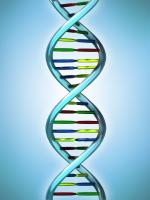|
This section contains 1,184 words (approx. 4 pages at 300 words per page) |

|
Microbial genetics is a branch of genetics concerned with the transmission of hereditary characters in microorganisms. Within the usual definition, microorganisms include prokaryotes like bacteria, unicellular or mycelial eukaryotes e.g., yeasts and other fungi, and viruses, notably bacterial viruses (bacteriophages). Microbial genetics has played a unique role in developing the fields of molecular and cell biology and also has found applications in medicine, agriculture, and the food and pharmaceutical industries.
Because of their relative simplicity, microbes are ideally suited for combined biochemical and genetic studies, and have been successful in providing information on the genetic code and the regulation of gene activity. The operon model formulated by French biologists François Jacob (1920- ) and Jacques Monod (1910-1976) in 1961, is one well known example. Based on studies on the induction of enzymes of lactose catabolism in the bacterium Escherichia coli, the operon has provided the...
|
This section contains 1,184 words (approx. 4 pages at 300 words per page) |

|


